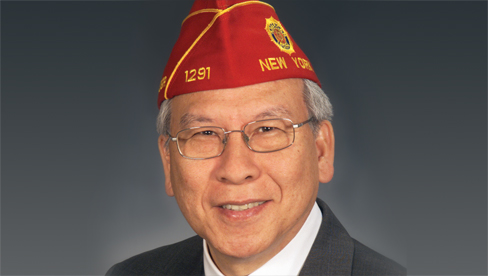
Military training must translate to jobs
In terms of our nation’s work force, veterans are an invaluable human resource, and The American Legion wants employers to know it.
I’ve said many times that if a soldier can drive a truck in a convoy across Iraq, he can drive a truck across the Midwest to deliver produce to markets. Similarly, a Navy corpsman who’s patched up Marines in Afghanistan should be qualified to work as an ambulance EMT.
Sadly, these sort of natural transitions are rare. The unemployment rate among veterans remains high, especially young veterans fresh off tours in Iraq and Afghanistan, and part of the reason is the difficulty in getting licensing and certification for skills learned in the military.
The Legion is out in front on this issue, eager to explain just what veterans bring to the table. In February, our Economic Division joined the U.S. Chamber of Commerce in co-hosting a national credentialing summit, where hundreds of government and industry representatives shared ideas on the best ways to translate military-acquired skills to post-service jobs in the public and private sectors. They agreed that civilian employers must do more to recognize military training and work experience, and that the military can help by promoting, requiring or even funding civilian credentialing for its members.
Since the summit, we’ve made remarkable progress. The Legion has counseled several government agencies on how to integrate highly skilled veterans into their work forces, including the Department of Transportation, the Food and Drug Administration, the FAA, the IRS, the Office of Personnel Management and the U.S. Postal Inspection Service.
In addition, our Economic Division is working with the American National Standards Institute (ANSI) and Solutions for Information Design (SOLID) to identify 10 credentialing agencies to evaluate the instruction program of the U.S. Army Training and Doctrine Command, at its request. Some of the criteria for these agencies are certifications that have “market value,” would serve a large number of soldiers, and relate to military occupation specialties that will lose the most soldiers in coming years or have high unemployment in the civilian world.
On the federal side, the Legion is working closely with members of Congress to pass legislation that would streamline credentialing for veterans and transitioning servicemembers applying for government jobs. In March, Rep. Jeff Denham, R-Calif., introduced H.R. 4155, the Veteran Skills to Jobs Act, which would direct the heads of federal departments and agencies to treat military training as sufficient to satisfy training or certification requirements for federal license. Sen. Bill Nelson, D-Fla., introduced a companion bill, S. 2239, in the Senate.
Meanwhile, H.R. 4115, the HIRE at HOME Act, would amend Title 38 to require – as a condition for receiving funds for veterans education and training – states to consider military training in granting certain state licenses or certifications. Veterans have proven their qualifications by doing dangerous jobs.
As a nation, we’ve invested much in their training. Let’s remove one more obstacle in their already difficult job search.
